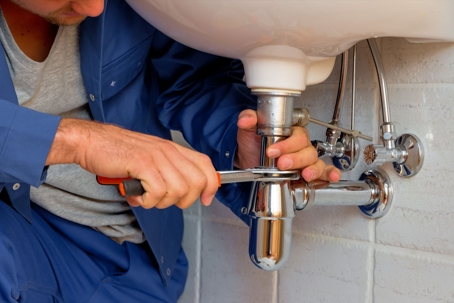Plumbing might not look dangerous, but many plumbing services are dangerous if they are not handled correctly. For example, explosions, electrocution, scalding, falls, and bruises are all risks with a variety of different plumbing services. Fortunately, professional plumbers can stay safe when handling all these risky services.
Below are the ways in which professional plumbers stay safe on the job.
They Use the Right Tools and Equipment
Tackling a plumbing job without the right tools can cause you to improvise, and improvisation increases injury risk. Professional plumbers have and use the right tools and equipment for each job. For example, they use a plumber's torch to heat and seal new piping connections. Without the tool, you might be tempted to use dangerous sources of flames or heat for the job.
They Use PPEs
One of the best ways to avoid plumbing injuries is to use personal protective equipment (PPE). Professional plumbers understand that the nature of each job determines the suitable PPE. For example, they use:
- Gloves to protect their hands from sharp, corrosive, or rough objects
- Face masks or respiratory equipment to avoid breathing in dangerous fumes or dust
- Hard hats to prevent injuries from falling objects
- Earplugs to protect the ear from noises, for example, when using power tools
- Visors or helmets to protect the face from irritants or knocks
The protective equipment depends on the job at hand. For example, gas plumbing has different dangers from water pipe fitting, so they may require different PPEs. The average person lacks protective gear and risks injury during DIY plumbing.
They Are Aware of Hidden Dangers
Plumbers know the dangers of their work, including dangers not readily apparent to nonprofessionals. For example, plumbers know:
- Those working at high heights can slip and fall, for example, when on ladders
- The risk of suffocation or asphyxiation when working in confined spaces, such as inside storage tanks or trenches
- Flying objects or debris, such as while pipe cutting, can cause eye injuries
- The back injury dangers from lifting heavy objects
- The risk of working with dangerous energy sources, such as electricity and gas
Plumbers understand these dangers and their precautions. They understand and practice the different OSHA (Occupational Safety and Health Administration) regulations that the government has set for particular workers and work environments.
As an amateur, you might not even be aware of the dangers of the plumbing systems in your home. For example, you might not know the risk of hitting a hidden gas pipe and the danger it exposes you to.
They Know Their Limits
Professional plumbers understand that some jobs require different or more advanced training than others. Plumbing has different specializations, such as pipe laying, steam fitting, and gas plumbing.
Some people become general plumbers and can handle multiple jobs with experience, but they still understand their limits. For example, commercial plumbers work on different systems from residential plumbers, and the two have different risk exposures. That is why some plumbing companies work with subcontractors from different specialties.
As an amateur, you might attempt jobs beyond your capabilities if you are ignorant to your limitations. Such attempts might expose you to dangers beyond your control. For example, you might be tempted to work in a confined space without an assistant or helper. You won't have anyone to help you or call for help if something happens to you in this situation.
As you can see, DIY plumbing can be a recipe for disaster on many levels. In addition to injury risks, you risk damaging your plumbing system or house if you try DIY plumbing and it goes wrong. Contact PlumbRite for all your plumbing needs. Let us use our expertise and experience to repair your plumbing issues safely and efficiently.
Additional Service Areas
Omaha, NE
La Vista, NE
Bellevue, NE


